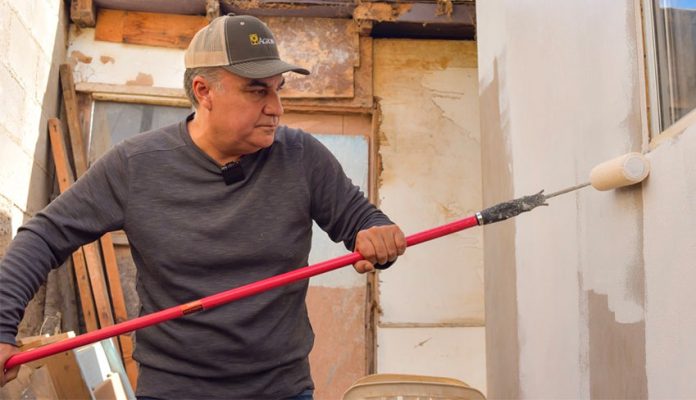Federal government super-delegates in at least four states have been accused of improperly using their positions to campaign for governor.
The newspaper Reforma reported Monday that the super-delegates – officials tasked with managing the federal government’s welfare and social programs at the state level – in Baja California, Baja California Sur, Colima and Tlaxcala are not only collecting a monthly salary of more than 126,000 pesos (US $6,000) but also using their positions to improve their chances at gubernatorial elections in 2021.
In Baja California, Alejandro Ruiz Uribe promotes himself on social media by posting photos that show him working on housing projects in poor neighborhoods and handing over food packages to people such as waiters and taxi drivers who lost income due to the coronavirus pandemic.
In Baja California Sur, Víctor Castro Cosío also promotes himself online, posting photos that show him inspecting the construction of branches of the federal government’s Banco del Bienestar (Bank of Well-Being), meeting with fishermen and overseeing the distribution of welfare payments to senior citizens.
In Colima, Indira Vizcaíno Silva uses the government’s tree-planting employment program and school improvement program, both of which are allegedly plagued by corruption, to promote her image, while Lorena Cuéllar does the same in Tlaxcala.
All four super-delegates are expected to seek the ruling Morena party’s nomination to run as candidates for governor next year.
Pablo Amílcar Sandoval, who resigned as the federal super-delegate to Guerrero at the start of this month, has also been accused of using his former role to improve his chances of success at that state’s gubernatorial election.
The national president of the National Action Party took to Twitter on Monday to denounce the super-delegates’ improper use of their positions.
“The use and abuse of the social programs continues,” Marko Cortés wrote. “The money comes from the taxes Mexicans pay and it’s to combat poverty, not for the Morena super-delegates to campaign and … promote their image.”
Higinio Martínez, a Morena senator, called for super-delegates found to be improperly using their positions for personal gain to be “immediately sanctioned and removed.”
Addressing the accusations, President López Obrador called on citizens to report any evidence of officials using public funds and government programs for their own benefit.
“[The super-delegates] can’t campaign and if they’re doing it, and there’s proof, they must be reported,” he said. “Electoral fraud is now [classified as] a serious crime,” the president added.
Indeed, officials can face hefty fines and prison sentences if found guilty of electoral fraud.
López Obrador said that government officials are free to pursue elected positions at next year’s elections but added that to do so they must resign from their current positions by the end of this month.
“We’re not going to use the public budget to help candidates and parties. Those who are in the government and want to participate [in the elections] will tender their resignations this week,” he said.
Security Minister Alfonso Durazo, who is seeking to be the Morena party candidate for governor in his native Sonora, presented his resignation today.
The super-delegates’ use of their positions to campaign for elected office was predicted by opposition party lawmakers before López Obrador took office in December 2018.
“The super-delegates idea gives the impression of being a factory for pre-candidates,” Senator Miguel Ángel Osorio Chong, a former interior minister and governor of Hidalgo, said in November 2018.
